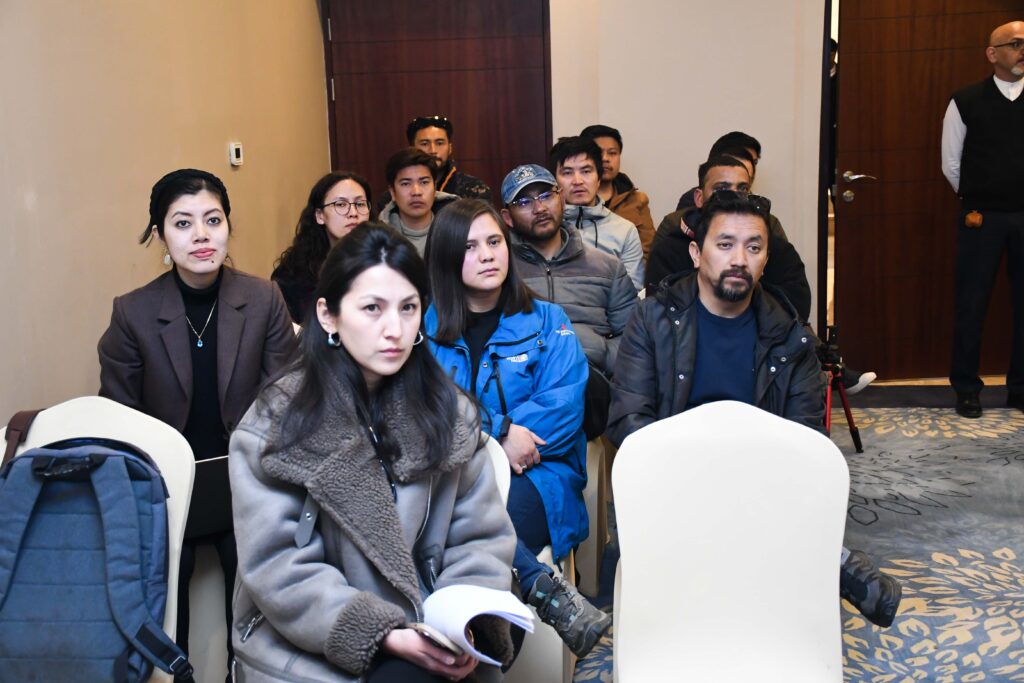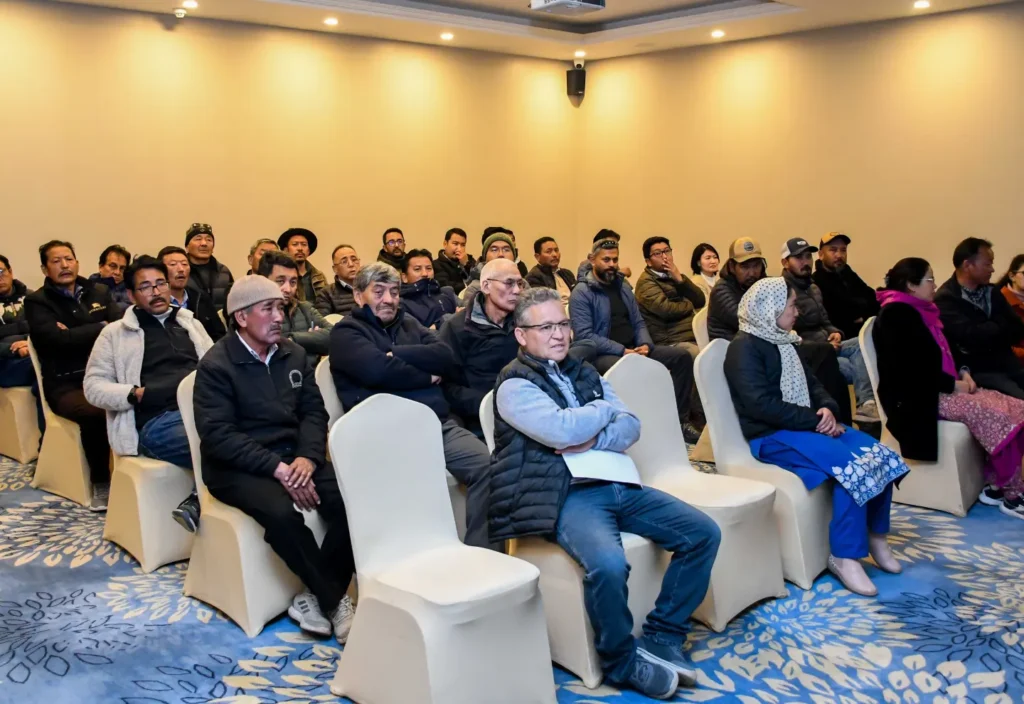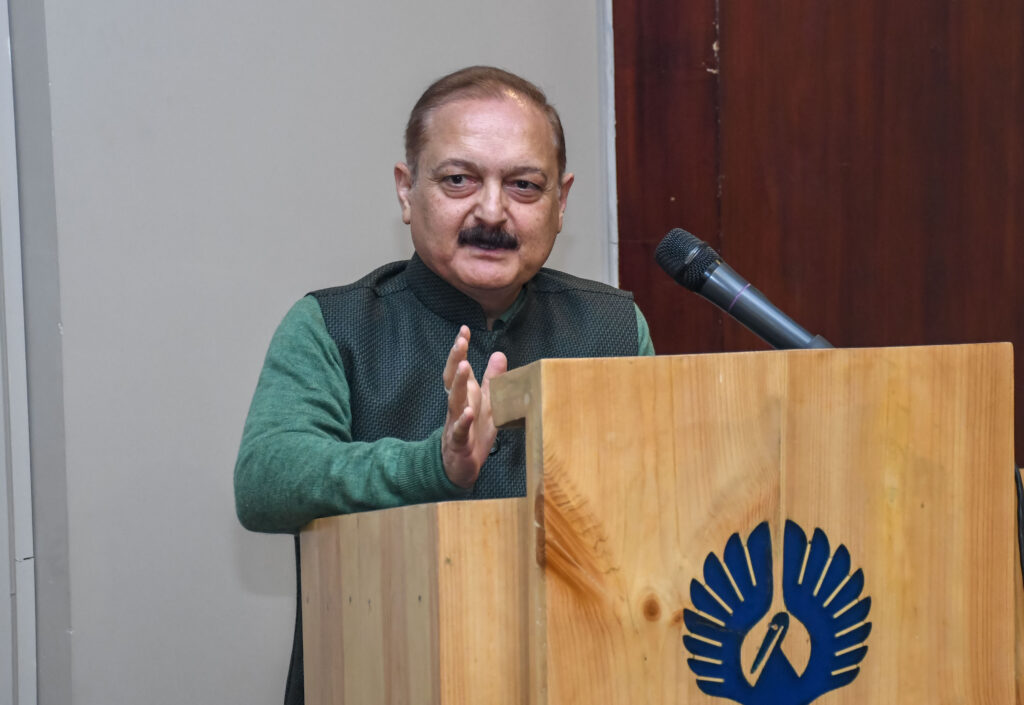Ladakh Pollution Control Board organises One-Day Compliance Workshop for Hoteliers
Leh, April 04: The Ladakh Pollution Control Board organised a one-day workshop to educate the hotel industry on compliance with the Water Act of 1974 and the Air Act of 1981 in Leh. The workshop was attended by over 50 hoteliers.



The workshop aimed to create awareness among the participants about the importance of complying with the Water Act and Air Act to reduce pollution and ensure sustainable tourism in the region. The attendees were given a detailed overview of the Acts and their implications for hotel operations.
Dr. Pawan Kotwal, the Chief Guest of the event and the Principal Secretary of Forest, Ecology, and Environment, emphasized the adverse impact of violating environmental norms on both the environment and public health. He acknowledged Ladakh’s unique natural beauty, stating that people come here to enjoy its unspoiled environment and serene atmosphere, which is its USP. Dr. Kotwal stressed the importance of following environmental laws and rules to sustain tourism in UT Ladakh which forms the major portion of Ladakh’s GDP.
He said that in ancient cultures of Asia, including that of India, great emphasis was laid on the maintenance of the natural environment and the judicious use of natural resources. In some cultures, polluting streams was punishable by death, and washing or bathing in them was prohibited.
He commended the large turnout of attendees and assured them of his support towards complying with environmental laws.
Dr. Kotwal expressed the hope that Ladakh would become known for its eco-friendly tourism and its commitment to following environmental laws. He hoped that all these laws will be followed and that Ladakh earns a name for being an environmentally conscious and eco-friendly tourist destination.
The Principal Chief Conservator Forest, Jigmet Takpa, emphasized during his address to the participants that access to clean drinking water is a fundamental right for every Ladakhi. He stressed that the right to life encompasses the right to safe and clean drinking water. He called upon the hoteliers to install Sewage Treatment Plants (STPs) to treat the sewage generated by their hotels. Takpa emphasized the environmental and health benefits of STPs and the economic advantages they offer. By installing STP, hoteliers, and guest house owners can take control of their own wastewater treatment process, rather than relying on expensive external facilities, he added. Additionally, he said that treated wastewater can be reused for non-potable purposes such as landscaping and toilet flushing, leading to significant cost savings on water bills. Furthermore, he stated that STPs require minimal maintenance and have a long lifespan, making them a wise investment for any business owner looking to reduce long-term costs.
He also gave a comprehensive presentation to the participants and apprised them about the provision of the Ministry of Environment Forest and Climate Change Water Act 1974, Air Act 1982, CPCB and NGT guidelines, and orders in relation to prevention and control of Air and water pollution.
The Regional Director, Ladakh Pollution Control Board, Aditya Madanpotra delivered the vote of thanks. Expressing his pleasure to see the enthusiastic involvement of hoteliers in this endeavour, he hoped that they will persevere in their efforts to preserve the natural beauty of Ladakh and uphold the region’s aesthetic appeal by strictly adhering to all regulations. He welcomed anyone who required any assistance or guidance from the Ladakh Pollution Control Board.
The President, of All Ladakh Hotel Association, Skarma Delex appreciated the initiative taken by the Ladakh Pollution Control Board and observed that the workshop was informative and useful. He assured that all the Hotels / Guest Houses would strive to install the STPs as per the guidelines, in a time-bound manner and he solicited the support and technical guidance of the Ladakh Pollution Control Committee in this regard.
A Q&A session also took place where the queries of the participants were addressed.
It is important to note that as per the Water Act 1974 and Air Act 1981, it is mandatory to obtain Consent to Establish (NOC) before the commencement of the construction activities and Consent to Operate (CTO) before starting the operation of the Units (individual establishments and the area/ cluster of restaurants/ hotels/ motels/ banquets etc.) from the concerned SPCB/PCC.
Further, the SPCB/PCC may direct the defaulting units for paying environmental compensation for damaging the environment considering their operations despite being non-compliant.
The Ladakh Pollution Control Board is responsible for monitoring and regulating environmental pollution in the Ladakh region. The board works to ensure compliance with environmental laws and regulations to protect the health and well-being of the people and the environment. The workshop was a great opportunity to engage with the hotel industry and create a dialogue on sustainable tourism.








